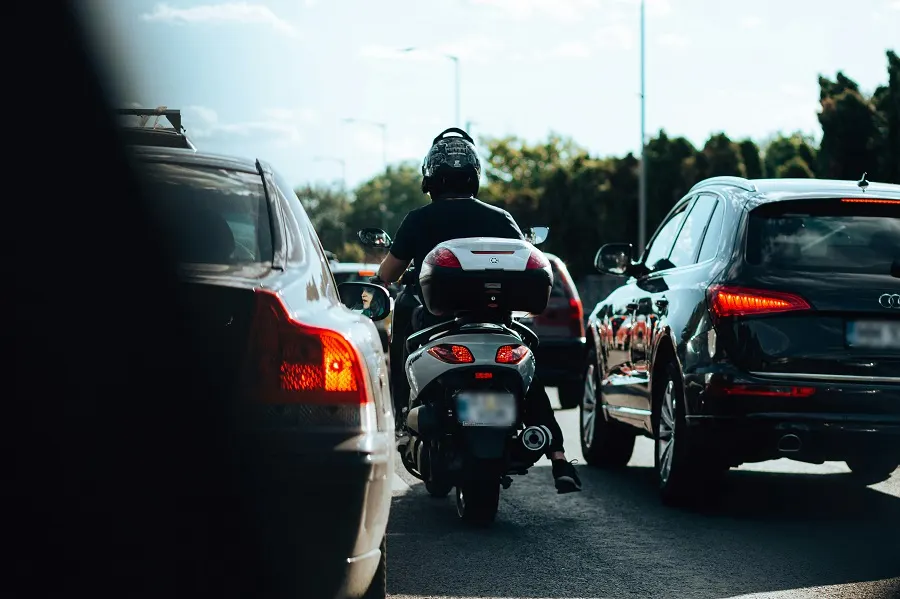You're driving through Los Angeles, and suddenly, your car hits a pedestrian. It's a scary situation, and it can feel like everything is happening at once. You may be worried about the pedestrian, about possible legal consequences, and about what to do next.
Don't panic. At Cohen & Marzban, we understand the stress and confusion that comes with hitting a pedestrian. Our experienced car accident attorneys are here to help you navigate this difficult situation and make sure you understand your rights and responsibilities.
You Hit a Pedestrian with Your Car: What to Do in California
You need to know that hitting a pedestrian with your car in California is a serious matter. This could involve legal trouble, financial responsibility, and potential criminal charges.
What to Do After Hitting a Pedestrian

When faced with the unfortunate circumstance of having hit a pedestrian, it's crucial to remain calm and take immediate action to ensure safety and protect your rights. The following steps outline the essential actions to take in such a situation.
By following these steps and seeking professional guidance, you can effectively manage the aftermath of a pedestrian accident and protect your interests. Prioritizing safety, documenting the incident, and seeking legal advice are essential components of a successful resolution.
Legal Process After a Pedestrian Accident in California
In California, the doctrine of comparative negligence is in effect. This means that even if the pedestrian was partially responsible for the accident, you may still be liable forsome of their damages. However, the amount of compensation you pay will be reduced in proportion to the pedestrian’s degree of fault.
Several factors can influence the determination of comparative negligence in a pedestrian accident case, including:
- Pedestrian's behavior: Was the pedestrian jaywalking, crossing against the signal, or distracted?
- Driver's behavior: Was the driver speeding, driving under the influence, or failing to yield to pedestrians?
- Road conditions: Were there poor lighting, obstructions, or other hazards that contributed to the accident?
We’ll carefully investigate the circumstances of your case to determine how fault should be allocated.
What Happens If You're Found Partially at Fault?

If you're found partially at fault for the accident, it means the amount of compensation you might be required to pay will be increased.
If you were speeding, distracted, or doing something that broke the law, you'll likely be held responsible for the pedestrian's injuries. It can be a tricky situation.
- You'll be liable: You might be responsible for the pedestrian's medical bills, lost wages, and other costs.
- Potential lawsuit: They could sue you, and you might have to go to court.
- Criminal charges: You could also face criminal charges and penalties.
The judge or jury will figure out the percentage of fault each person had and adjust the amount of money they pay or receive.
What Right-of-Way Laws Apply to Crosswalks?
In most jurisdictions, pedestrians have the right-of-way when crossing at a crosswalk. This means that drivers must yield to pedestrians and allow them to cross safely. Failure to do so can result in serious consequences, including fines, points on your license, or even jail time.
By understanding and following these rules, drivers and pedestrians can help prevent accidents and ensure the safety of everyone on the road. Both parties need to be aware of their rights and responsibilities when navigating crosswalks.
Protecting Yourself After a Pedestrian Accident

Consulting with a qualified car accident attorney is crucial for protecting your rights and maximizing your potential compensation when involved in a pedestrian accident. A lawyer can provide invaluable assistance in several key areas:
- Understanding your rights: An attorney can explain your legal rights and options, ensuring you know the available remedies and protections.
- Gathering evidence: A lawyer can help you gather essential evidence, such as medical records, police reports, witness statements, and photographs, to support your rights.
- Negotiating with insurance companies: Insurance companies may attempt to maximize their clients’ damages, but a lawyer can negotiate on your behalf.
- Defending against a lawsuit: If necessary, a lawyer can represent you in a lawsuit.
In the aftermath of a pedestrian accident, seeking legal representation is a wise decision. A qualified attorney can help you understand your rights, gather evidence, negotiate with insurance companies, and pursue a favorable resolution.
By protecting yourself with legal guidance, you can increase your chances of a successful outcome and recover from the incident more effectively.
Car Insurance Laws in California
Here's the good news: California has laws to help protect everyone on the road.

.webp)
.webp)



